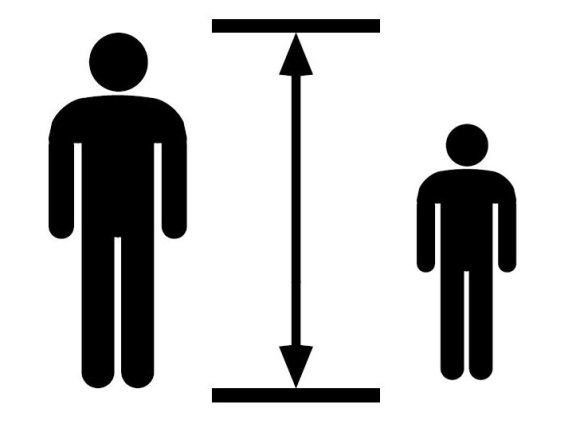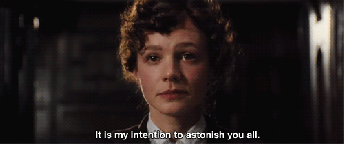
Well.
Be prepared. I almost always open with a quote but today I open with a sentence … a 198 word sentence written by Oliver Wendell Holmes Sr <father of US Supreme Court Justice Oliver Wendell Holmes Jr.>:
—————————
Many times, when I have got upon the cars, expecting to be magnetized into an hour or two of blissful reverie, my thoughts shaken up by the vibrations into all sorts of new and pleasing patterns, arranging themselves in curves and nodal points, like the grains of sand in Chladni’s famous experiment,—fresh ideas coming up to the surface, as the kernels do when a measure of corn is jolted in a farmer’s wagon,—all this without volition, the mechanical impulse alone keeping the thoughts in motion, as the mere act of carrying certain watches in the pocket keeps them wound up,—many times, I say, just as my brain was beginning to creep and hum with this delicious locomotive intoxication, some dear detestable friend, cordial, intelligent, social, radiant, has come up and sat down by me and opened a conversation which has broken my day-dream, unharnessed the flying horses that were whirling along my fancies and hitched on the old weary omnibus-team of every-day associations, fatigued my hearing and attention, exhausted my voice, and milked the breasts of my thought dry during the hour when they should have been filling themselves full of fresh juices.
——————————–
So.
 When I read this sentence <read it several times in fact> I thought of “filling up” and “emptying out.”
When I read this sentence <read it several times in fact> I thought of “filling up” and “emptying out.”
Huh?
Oliver Sr. was no dumb shit. His brain was filled with more “kernels of knowledge sand” than most of us will ever be filled with. And, yet, he outlines how the knowledge works best when emptied of structured thinking and any specific destination but rather when “without volition” new thoughts are unharnessed by old learning rearranged.
Couple lessons in that:
- New thinking is almost always simply a new way of looking at something everybody already knows.
- In an age of instant gratification, smartphone access to any answer you would ever want and a belief that the fastest answer is the best answer it is good to remember that thinking is like baking. You have ingredients and you need to properly bake them to arrive at something special.
This isn’t to suggest that there is no hurry but rather you use the allotted time in the best possible way.
I worry more about the latter than I do the former in today’s world.
I worry about it because thinking is more often like what someone referred to Emerson’s writing as “a chaos full of shooting-stars, a jumble of creative forces.”
That is thinking.
Thinking doesn’t pretend to follow rules, enact some methodology or even use  the words it is ‘supposed to use.’
the words it is ‘supposed to use.’
—–
unharnessed the flying horses that were whirling along
my thoughts shaken up by the vibrations into all sorts of new and pleasing patterns, arranging themselves in curves and nodal points, like the grains of sand
fresh ideas coming up to the surface, as the kernels do when a measure of corn is jolted in a farmer’s wagon
—-
And more often than not, in an attempt to be more efficient in a time constrained world, we try and micro-structure our thinking.
It seems like as the world became more enlightened by mass media, structured education systems and “college for all” we have become … well … more sensible in our thinking.
Which brings me back to my opening sentence.
It breaks all the rules of not only how to write but how to think.
And, yet, it captures the essence of thinking … it certainly captures the magic of thinking … and, unfortunately to the thinking methodology Nazis, it certainly captures the practicality of freedom in thinking.
 Our world today is strewn with catchy incorrect memes, rewritten history, faulty logic and misleading statistics all offered to us out of context.
Our world today is strewn with catchy incorrect memes, rewritten history, faulty logic and misleading statistics all offered to us out of context.
The internet, while offering us a boundless offering of truth & facts, has only encouraged sloppy, lazy thinking.
It should be enlightening us but, far too often; it actually encourages some fairly absurd unenlightened thinking.
Thinking, and I mean real thinking, can cure this unenlightened cancer. The cancer is not social media or this absurd love of brevity … it is us and our thinking.
In thoughtful moments I tend to believe people know this. They know social media and smartphones and the internet is not the problem … it is us. Yeah. All those things make us susceptible to these wacky conspiracy theories, false statistics and alternative facts but they do not live unless we breathe life into them.
Look.
I do worry about thinking on occasion. Shit. I have even written about how I cried about thinking in today’s world.
I have a number of friends who send me memes and out of context quotes to make a point and ask me my view.
I probably send more time fact correct and making people aware of truth than I do sharing my own opinion. That worries me. in fact this is a direct quote from me:

======
But here is what really worries me.
If you, not a dumb guy by any stretch of the imagination, can truly believe even 75% of what you shared with me then what does the everyday schmuck believe?
That is what worries me.
=========
Thinking does take time and some space and … well … even some work <even if that work is to find empty space and not working>.
And, even then, the problem is that you can search the internet far and wide without finding a clear repudiation of some falsely stated, good sounding piece of untrue crap.
In fact.
If you do spend some time researching something you will more likely find a massive gap between public belief and expert knowledge.
There is often such a delusional gap between reality and “belief” it often seems absurd … and absurdly difficult to bridge the gap.
We need more thinking today than ever before. And, sadly, we need more thinking on simpler things than ever before.
Oliver Sr. was thinking on big things and big thoughts. And we need people like that.
What worries me is that in today’s world we need more people doing more thinking on the kernels of corn, the grains of sand and the horses themselves.

I worry about that because if we don’t have more people doing that kind of thinking all we will end up doing is rearranging unfortunately misguided untrue kernels of corn, fake grains of sand and unicorns not horses.
I imagine my real point today is that effective thinking is dependent upon tow things:
- insuring we have lots of “true grains” of sand in our heads <not alternative facts or falsehoods>
- insuring we have some time to properly jostle the kernels of corn <or grains of sand if you don’t want me to mix my metaphors> to rearrange them in new configurations
I don’t believe the world, society or any business wants us rearranging lies, fake and unicorns in order to form a better union.




 Forever.
Forever.
 Forever is an empty concept.
Forever is an empty concept.



 The only places in which Trump’s numbers rose versus Obama are … uhm … Russia <which rose a staggering 43 points, 11% to 54% confidence>and Israel. And, I would note, that despite the common perception Obama was loathed by Israel, Obama’s confidence ratings varied from 49% to 71% during his administration as compared to Trump’s current 58%.
The only places in which Trump’s numbers rose versus Obama are … uhm … Russia <which rose a staggering 43 points, 11% to 54% confidence>and Israel. And, I would note, that despite the common perception Obama was loathed by Israel, Obama’s confidence ratings varied from 49% to 71% during his administration as compared to Trump’s current 58%. international numbers should make anyone and everyone take a moment and pause.
international numbers should make anyone and everyone take a moment and pause. Which leads me to my point <other than expressing some sadness> … a word to the wise <and even a
Which leads me to my point <other than expressing some sadness> … a word to the wise <and even a  often argues that words don’t matter and behavior is more important.
often argues that words don’t matter and behavior is more important. Look.
Look.


 remember “the wins”, even if they are few and far between, with regard to their children. But maybe we should be pointing out the attempts, the persistency of their parenting attempts, rather than just the wins … the victories. And while the victories must be an incredible source of pride <that their attempts in parenting actually paid off in some way> their real pride source of being a parent, a father, is more likely to be found in the persistent attempts.
remember “the wins”, even if they are few and far between, with regard to their children. But maybe we should be pointing out the attempts, the persistency of their parenting attempts, rather than just the wins … the victories. And while the victories must be an incredible source of pride <that their attempts in parenting actually paid off in some way> their real pride source of being a parent, a father, is more likely to be found in the persistent attempts.



 When you are young if you find the wrong person that person can encourage the wrong things even if they mean well.
When you are young if you find the wrong person that person can encourage the wrong things even if they mean well.
 We solved problems in isolation, deep thought, and through introverted reflection.
We solved problems in isolation, deep thought, and through introverted reflection. in their heart of hearts, that they will remain lost forever.
in their heart of hearts, that they will remain lost forever.




 the more difficult it was to break free from the grip of what society expected and demanded of us.
the more difficult it was to break free from the grip of what society expected and demanded of us.

 next day and say “I am starting all over again putting forth the effort and with good intentions.”
next day and say “I am starting all over again putting forth the effort and with good intentions.”  For most of us … 99% of the things you have done were done with best intentions by taking the best view of the situation at hand and, most likely, done in the range of best decisions available.
For most of us … 99% of the things you have done were done with best intentions by taking the best view of the situation at hand and, most likely, done in the range of best decisions available.


















